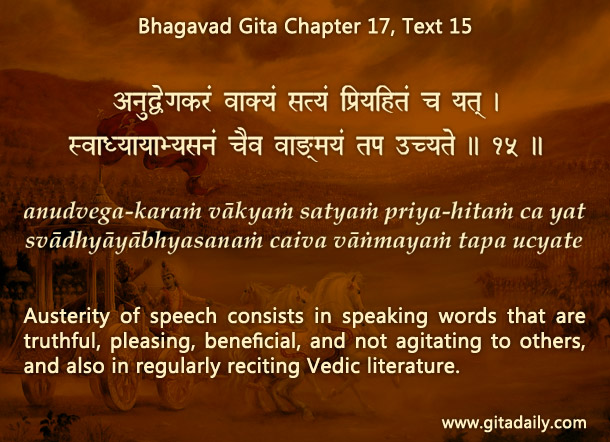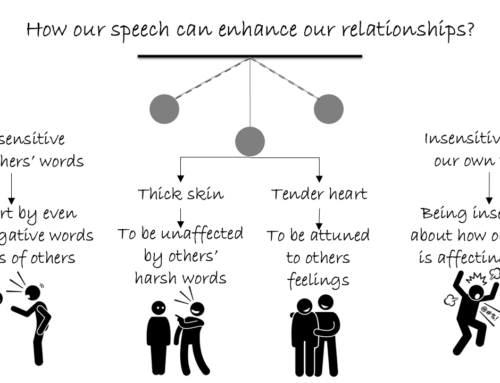Speak in a way that educates and engages not enrages and estranges
Suppose we have some knowledge that will be helpful or valuable for others. When we speak to share it with them, we sometimes find that they don’t do what we recommend or don’t even like our giving them such guidance.
We may wonder, “How can we speak in a way that is more effective? How can we know when our speech is effective and when ineffective?” The effectiveness of our speech depends on not just the content of what we speak but also on its consequence — not just whether we speak the right thing, but whether our speech inspires others to do the right thing.
Guiding us toward effective speaking, the Bhagavad-gita (17.15) states that austerity of speech is to speak in a way that is non-agitating, truthful, pleasing, beneficial and scripturally-grounded.
Based on this Gita guideline, we can summarize the characteristics of effective speech as follows: it educates and engages, not enrages and estranges.
Educate, not enrage: When we speak something, what we say needs to make sense to people — and make not just intellectual sense but also emotional sense. Rather than telling them that they are wrong, which is likely to come off as judgmental and enrage them, we need to communicate in a way that gives them the vision to see for themselves the counterproductive consequences of their way of thinking and acting, so that they can make a healthier choice.
Engage, not estrange: Any course correction, especially one that involves a significant lifestyle change, requires commitment and can be challenging. If people feel that the right thing is too lofty to be practical, they will get estranged. They need help to engage with truth and experience for themselves the benefit of such engagement — and our speech needs to show them the doors to such engagement.
When we thus discipline our speech, the likelihood of it being effective increases manifold.
Think it over:
- What determines whether our speech is effective?
- How can our speech educate, not enrage?
- How can our speech engage, not estrange?
***
17.15 Austerity of speech consists in speaking words that are truthful, pleasing, beneficial, and not agitating to others, and also in regularly reciting Vedic literature.
To know more about this verse, please click on the image
Explanation of article:
Podcast:




Leave A Comment